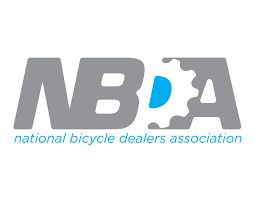IRVINE, Calif. (BRAIN) — The National Bicycle Dealers Association is calling on manufacturers, distributors, and retailers to adopt UL standards for e-bikes, lithium-ion batteries, and other e-mobility devices.
The request is in conjunction with the NBDA's formal position statement issued last month that endorses and advocates for voluntary UL 2849, UL 2271, and UL 2272 standards. According to the NBDA, this proactive effort will protect consumers, reduce liability risks for retailers, and preserve the credibility of the cycling and e-mobility sector before regulatory mandates are imposed.
"In the absence of government mandates, the bicycle industry has an opportunity to demonstrate leadership and commitment to best practices," said Heather Mason, NBDA executive director. "Our formal position statement makes it clear — we're not waiting for regulation, we're leading with responsibility. By voluntarily adopting UL standards now, we take a united stand for safety, professionalism, and the long-term strength of the bicycle industry."
In 2022, the NBDA advised its retailer members to ask their suppliers to conform with existing mandatory and voluntary standards.
The Consumer Product Safety Commission voted in April to approve an e-bike and lithium-ion battery testing standards proposal but it was never published for the required public comment period because of upheaval at the agency that resulted in the firing of the three commissioners who voted for it.
The proposal would require e-bikes and other e-mobility devices to meet modified UL testing standards, while not also recognizing European standards that some brands use.
The NBDA's call to action centers on the three UL certification standards that must be performed by Nationally Recognized Testing Laboratories (NRTLs):
- UL 2849 – Electrical systems for e-bikes (complete system safety).
- UL 2271 – Batteries for use in Light Electric Vehicle (LEV) applications.
- UL 2272 – Electrical systems for personal e-mobility devices (e.g., hoverboards).
By promoting UL-certified products, the NBDA's goal is to help retailers:
- Reduce risk and prevent safety incidents like fires.
- Improve insurance eligibility and strengthen shop integrity.
- Maintain customer trust through transparent safety practices.
- Meet OSHA regulatory compliance requirements for commercial operations.
"Retailers face increasing exposure to safety-related liability," Mason said. "Our mission is to empower and safeguard specialty bicycle retailers by giving them the tools and knowledge to confidently choose safe products and partners."
The NBDA also is calling on manufacturers and suppliers to lead with certified products and commit to third-party testing by NRTLs, and for retailers to demand certified inventory, sell certified products, and participate in safe storage and customer education.
The NBDA Safety Pledge program is designed to join retailers and suppliers across the bike and micromobility industry to take a leadership role in advancing product safety. The program features separate commitment tracks for retailers and suppliers, each with specific safety standards and best practices.
Retailer Safety Pledge commits participating retailers to:
- Sell only road-legal, safety-tested e-bikes from trusted suppliers.
- Repair e-bikes only in accordance with manufacturer instructions.
- Supply only safety-tested chargers and batteries with full compatibility documentation.
- Provide complete safety information and user instructions with all products.
Supplier Safety Pledge commits participating manufacturers to:
- Certify all applicable e-bike products to UL 2849 standard.
- Certify all battery products to UL 2271 standard.
- Certify all electrical system products to UL 2272 standard.
- Provide complete safety documentation and user instructions.
- Work exclusively with certified component suppliers.
Participating companies receive public recognition on the NBDA website, marketing support through NBDA campaigns, and suppliers earn the official NBDA "Safety Pledge" badge for use on websites, packaging, and marketing materials.
For more information about the NBDA Safety Initiative and to sign the Safety Pledge, visit the NBDA.


